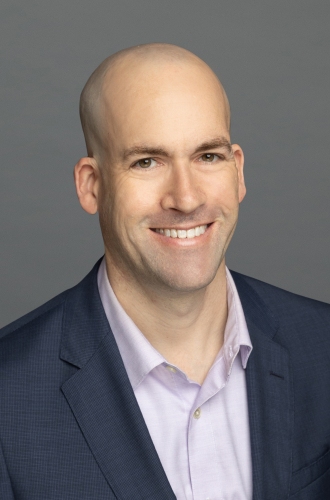-

-

-
Mike Boylan-Kolchin
Professor
Department of AstronomyCosmology and galaxy formation; dark matter physics; near-field cosmology; high-redshift galaxies; globular clusters-
Ph.D (Physics), University of California, Berkeley (2006)
B.A. (Astrophysics), Columbia University (2001)Professor Mike Boylan-Kolchin is a theoretical astrophysicist who works on galaxy formation theory and its interface with cosmology. He works on a variety of questions related to dark matter, cosmological structure formation, and galaxy formation physics across cosmic time. His work combines numerical simulations, analytic models, and observations.
-
Cosmology and galaxy formation, including:
- the formation, evolution, and structure of galaxies and dark matter halos
- the nature of dark matter
- near-field cosmology
- high-redshift galaxy formation
- globular cluster formation and evolution
- cosmological parameters and tensions
- numerical simulations
-
Some Publication Highlights (for a full listing, see NASA ADS or the list here [pdf] or here [html])
M. Boylan-Kolchin, Accelerated By Dark Matter: A High-redshift Pathway to Efficient Galaxy-scale Star Formation; arXiv:2407.10900
M. Boylan-Kolchin, Stress Testing ΛCDM with High-redshift Galaxy Candidates; Nature Astronomy, 7, 731 (2023)
M. Boylan-Kolchin & D. Weisz, Uncertain Times: The Redshift–Time Relation from Cosmology and Stars; MNRAS, 505, 2764 (2021)
M. Boylan-Kolchin, Galaxy Motions Cause Trouble for Cosmology; Science, 359, 520 (2018)
M. Boylan-Kolchin, The Globular Cluster - Dark Matter Halo Connection; MNRAS, 472, 3120 (2017)
J. Bullock & M. Boylan-Kolchin, Small-Scale Challenges to the ΛCDM Paradigm; ARAA, 55, 343 (2017)
M. Boylan-Kolchin, D. Weisz, J. Bullock, M. Cooper, The Local Group: The Ultimate Deep Field; MNRAS, 462, L51 (2016)
M. Boylan-Kolchin, J. Bullock, M. Kaplinghat, Too Big to Fail? The Puzzling Darkness of Massive Milky Way Subhaloes; MNRAS, 415, L40 (2011)
M. Boylan-Kolchin, V. Springel, S. D. M. White, A. Jenkins, G. Lemson, Resolving Cosmic Structure Formation with the Millennium-II Simulation; MNRAS, 398, 1150 (2009)
-
National Science Foundation CAREER (Faculty Early Career Development) Award (2018)
Board of Visitors Teaching Excellence Award (2019)
Web of Science Highly Cited Researcher (2021)
-




